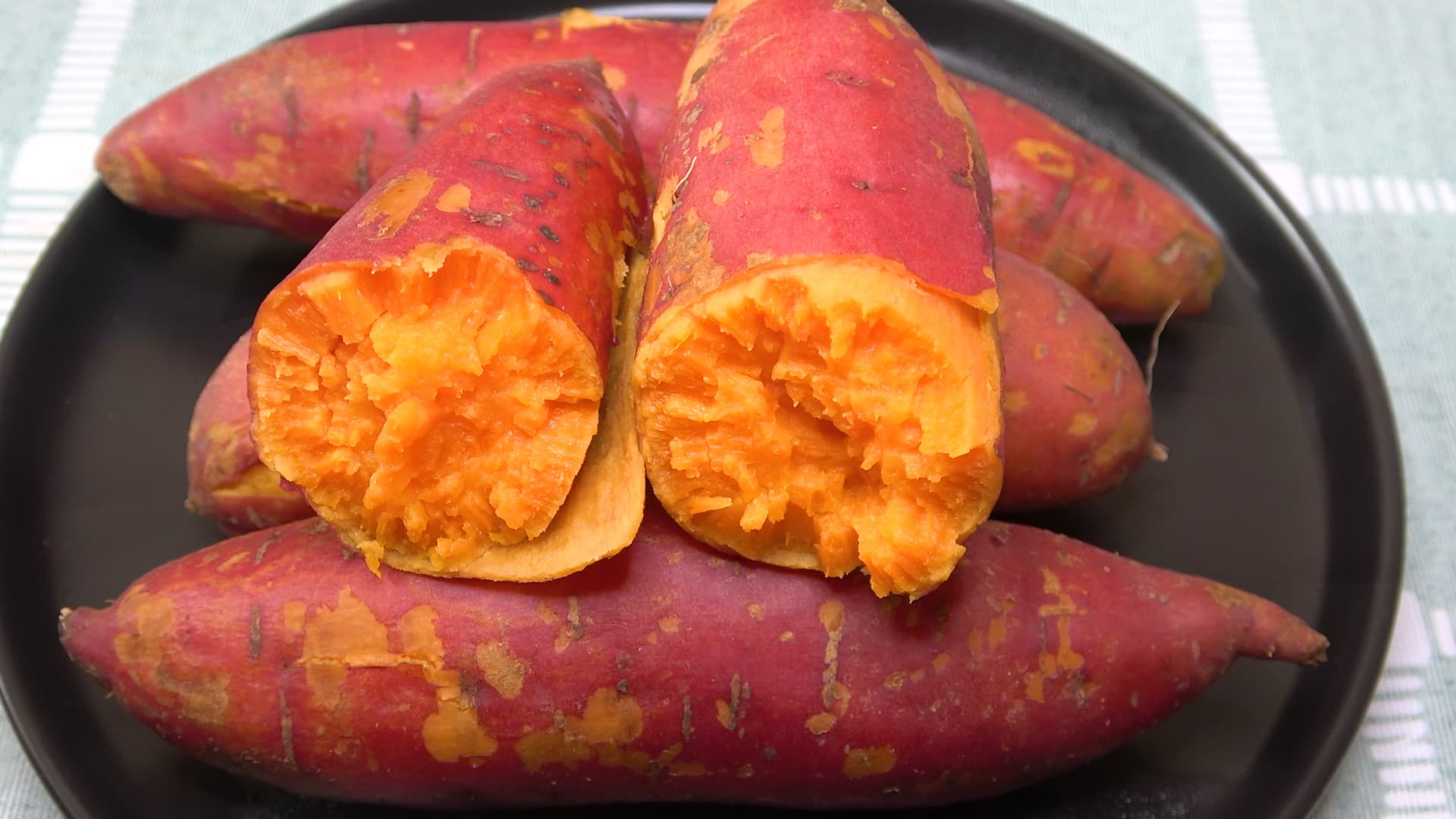Sweet potatoes and familiar, rustic foods such as corn, bananas, tomatoes, pumpkins… are not recommended to be eaten together for health benefits.
One of the most advantages of sweet potatoes is that they contain a large amount of protein, polysaccharides, and mucus, which helps the body maintain the flexibility of the brain and heart, thereby preventing the occurrence of atherosclerosis, good for the respiratory tract, digestive tract, and lubricating the joint cavity.

Sweet potatoes bring many nutritional values to health
In addition, sweet potatoes contain a large amount of fiber, which can promote intestinal motility, effectively prevent constipation and reduce the rate of rectal cancer and colon cancer.
Eating sweet potatoes in the morning will be the perfect choice to both replenish energy for the new day and help keep fit and beautify the skin. In particular, it also helps prevent dangerous diseases such as cancer, cardiovascular disease, stroke, etc.
Although it is a nutritious and relatively healthy food, sweet potatoes are not recommended to be used with the following food groups:
- Do not eat with pumpkin
Sweet potatoes and pumpkin are 2 types of laxative foods, but when combined together, they will cause flatulence. Nausea and heartburn occur when eating these 2 foods at the same time. Note that when cooking, boil thoroughly if you do not want the bloating to be worse.
- Do not eat with tomatoes
If sweet potatoes are already on the menu, you should not add tomatoes. Because sweet potatoes contain sugar, when consuming this food, the remaining sugar will stimulate the stomach to secrete more gastric acid.
Meanwhile, tomatoes when eaten in the body are easily precipitated in a strong acidic environment, from which food will accumulate in the intestines and stomach, causing indigestion, difficulty in absorption, stomach pain, diarrhea.
- Do not eat with bananas
Just like tomatoes, when eating sweet potatoes, you should not eat them with bananas. These are both foods that easily create a feeling of fullness. Therefore, if eaten at the same time, it is easy to get fullness and acid reflux. Even eating too many bananas and sweet potatoes will lead to difficulty in digestion and absorption, in severe cases it can cause chronic poisoning due to the inhibition of food in the intestines and stomach.
- Do not eat with corn
Corn is considered a food with high nutritional content. On average, 100g of corn contains about 70.6g of carbohydrates, rich in protein, fiber, fat, magnesium, potassium… In addition, corn contains a large amount of vitamins, 5-10 times higher than the amount of vitamins in rice and wheat.
To digest corn, the stomach needs to secrete a lot of acid and it also takes a long time to complete this job. If you eat corn and sweet potatoes at the same time, it will put a burden on the stomach, causing the stomach to secrete a lot of acid to digest both foods, worse, causing stomach reflux.
- Do not eat with eggs
Eggs are a food rich in protein, low in fat, very suitable for breakfast. Whether eggs and sweet potatoes can be combined or not depends on each subject. Specifically, for people with good peristalsis and digestive system, eating these two dishes at the same time will not cause any harm. But for people with indigestion, the stomach needs a lot of time to digest all the protein in eggs. If you continue to eat sweet potatoes, it will increase the burden on the digestive tract and cause stomach pain.
- Do not eat with persimmons
The sugar in sweet potatoes will easily ferment in the stomach when entering the body, so eating sweet potatoes will cause increased secretion of stomach acid. If you eat both sweet potatoes and persimmons together, it will condense and precipitate the acid in the stomach due to the chemical reaction of the tannin-pectin complex of persimmons. In severe cases, you may experience gastrointestinal bleeding or stomach ulcers.





